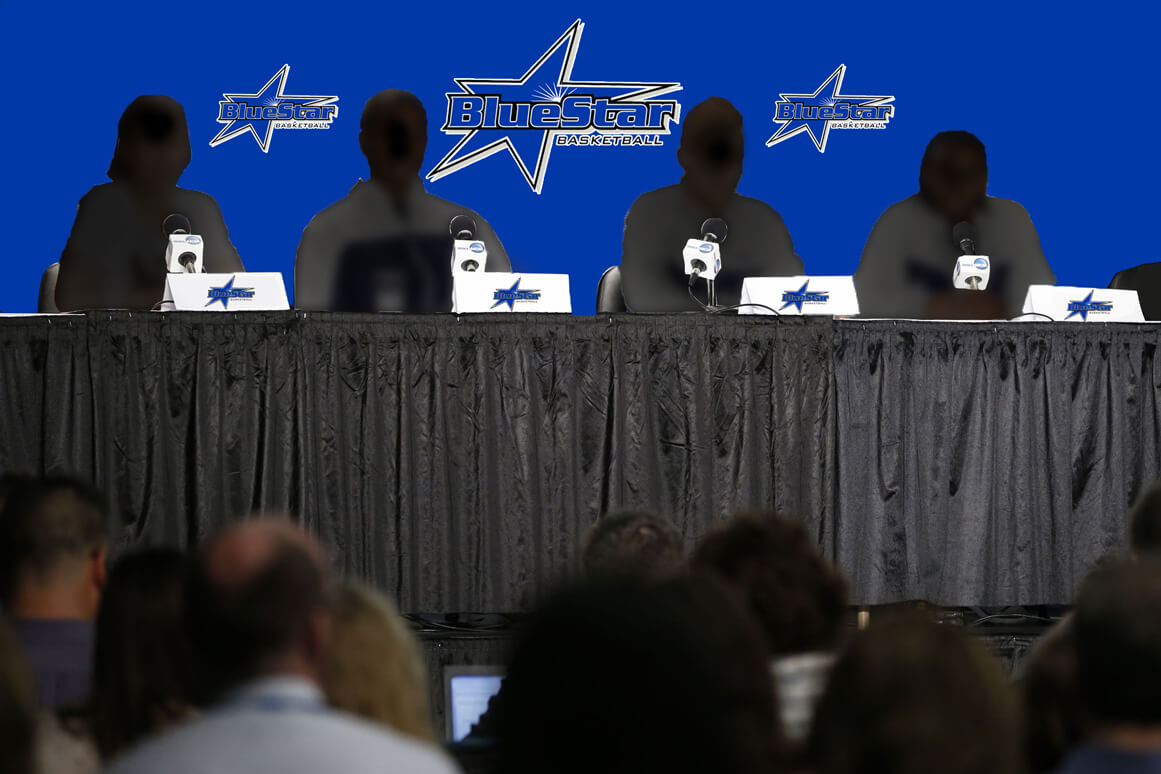Really writing off the top of my head as I head to Dallas for the Women’s Final Four:
I realize the main storyline for the national media is about UConn’s seeming invincibility, and I wouldn’t bet against the Huskies winning the whole thing again in an astonishing season, even by their own high standards. Yet there’s so much more to savor, even for casual fans.
As I noted after Sunday’s games, I’m still giddy about Morgan William’s 41-point performance in the Elite 8 for Mississippi State, which will be making its Final Four debut against UConn.
I couldn’t be more thrilled for coach Vic Schaefer, who’s really paid his dues and finally—at the age of 50!—got a major head coaching job. His years as Gary Blair’s “Minister of Defense” have paid off, and now he’s got a team that can really score.
Schaefer’s done this in Starkville, where fans used to turn out in the hundreds. Now the Bulldogs draw thousands on weeknights, a testament to his willingness to promote his team off the court as hard as he gets after them in the gym.
And how about what Stanford and South Carolina have done to get there, and who will play in the first semifinal?
This is a vintage coaching job for Tara VanDerveer, who doesn’t have an All-American star like the Ogwumike sisters but a very solid, experienced resilient team that overcame a 16-point deficit to knock off Notre Dame.
South Carolina has looked really good even with the absence of starting post Alaina Coates. All-American A’ja Wilson and guard Kaela Davis have been buoying the Gamecocks.
That game also features a coaching matchup in VanDerveer, the 1996 U.S. Olympic coach, and Dawn Staley, one of the stars of that gold medal team in Atlanta, and just after Staley was named to be U.S. National team coach through the 2020 Olympics in Tokyo.
These are some terrific stories that will get some attention, to be sure, but when a national championship is on the line, one topic in this sport takes up most of the available oxygen.
What Geno Auriemma has accomplished at UConn is one of the great sports stories of our time, and not just in women’s basketball or women’s sports. What I’m riffing on below is nothing against what UConn has done, but rather the media and public prism through which an entire sport is viewed.
Just like last year, when three new teams made the Final Four, this event is about so much more on the court than one team. In a bottom-line, results-driven society, with the national showcase featuring such a dominating team, that doesn’t sound like it makes a lot of sense.
I get e-mails and social media messages all the time from people outside the sport telling me I don’t make sense when I assert this (trust me, I don’t make sense about a lot of things so no offense taken). They’re trying to see women’s basketball in a more expansive light. However, it’s hard to do when UConn not only is crushing all comers, but doing so in such jaw-dropping, highly entertaining fashion.
The Huskies play beautiful, team-oriented, visually appealing basketball that embodies everything you could want about team sports, and about how high a competitive bar can be raised.
This is happening now, with so many other teams boasting terrific talent, coaching and institutional support and making serious strides at closing the gap, which makes real progress hard to gauge. It’s seemingly invisible when placed next to the UConn colossus.
Jay Bilas tweeted during UConn’s demolition of a young, feisty Oregon team that the women’s game keeps getting better and better, but so does UConn.
Listening to Fran Fraschilla on the call for the men’s NIT, he expanded on the topic, saying what many believe but don’t often always blurt out: At some point, this has got to change. He is right, but that’s not going to happen anytime soon, not with what Geno loses (only senior Saniya Chong) and what he’s got coming in (Azura’ Stevens and Megan Walker, among others) to join Katie Lou Samuelson, Napheesa Collier, Gabby Williams and Kia Nurse.
Yes, the NCAA is trying to broaden the appeal of the sport to casual viewers, who are fed the same thing over and over, that there’s only one team that really matters.
I get that, I really do. I’m not trying to sound so parochial when I say this, but those people really into the women’s game, whatever their level of interest or investment may be, understand this too. They also realize that the approved “storylines” that will be hammered home by ESPN, The New York Times and so on don’t really capture what’s happening away from the spotlight.
Some NCAA tournament results reflected this, but as I wrote earlier, it was hard to see any of that. I won’t rehash those old arguments here, but it does reflect a certain kind of myopia at work.
When the men’s Final Four takes place in Phoenix, the focus won’t just be on the four teams that got there, but what transpired along the way. This isn’t happening as much on the women’s side, and UConn’s dominance is only part of the reason why.
Again, not to be too critical of ESPN, but it’s trying to sell a national narrative. Until we get to this point of the season, women’s college basketball really isn’t a national sport. It still needs to be promoted and sold better at the institutional and regional and conference levels. There isn’t the grassroots critical mass that’s developed enough in the stands, or parity on the court.
Yet it’s getting there. To watch Kelly Graves’ boisterous young Ducks knock off Duke at Cameron Indoor Stadium, then topple Maryland in the Sweet 16, was one of the revelations of this tournament. Sabrina Ionescu, Ruthy Hebard and a sensational freshman class will be so much fun to watch in the coming years.
I could go on with other examples, but I’ll leave this for now with the hiring of Belmont coach Cameron Newbauer to lead the Florida Gators.
He’s been considered one of the rising young coaches in the sport for a while, and learned under Andy Landers and Jeff Walz. At the age of 38, and with four great seasons under his belt in Nashville, I hope Newbauer is ready for what’s ahead. He’s got to recruit in a talent-rich state where Sue Semrau, Katie Meier, Jose Fernandez and Karl Smesko do a great job just about every year getting their teams in the NCAA tournament, and competing at a national level.
Whether Becky Hammon was preferred or not really doesn’t matter now. Florida AD Scott Stricklin, who hired Schaefer when he was at Mississippi State, has one of the best eyes for spotting women’s coaching talent in the country. Earlier in his career, he was even women’s hoops SID at Auburn for a couple years during the Joe Ciampi era, so he saw SEC women’s basketball in its halcyon days.
Florida’s one of the best jobs in the country, but that program has been mediocre since Carol Ross left. Carolyn Peck couldn’t get much done, and Amanda Butler struggled in a 10-year tenure.
I know Butler is very well-liked in the coaching community, and I hope she can find a good place to land. She did a really good job at Charlotte before returning to her alma mater, but the stakes have gotten so high in the power conferences and the SEC is no exception.
When you see what Staley and Schaefer have done getting teams to the Final Four, what Tennessee and Kentucky and Texas A & M do on a regular basis (even when they fall short of their own expectations), what Missouri did this season in a very good year, and how Georgia and Vanderbilt are retooling with rising-star coaches, standing still isn’t an option.
Arkansas cast Jimmy Dykes aside after only three years, an experiment that just didn’t work out. Whether Jeff Long is chasing, or can get, Mike Neighbors or not, the Razorbacks couldn’t sit idly by either.
At this level of the sport, it’s not really about catching UConn, but joining a very crowded pack of pursuers that want to be in contention for the day—if that ever comes about in my lifetime—when the Huskies can be had.
Wendy Parker is a sportswriter and web editor who has covered women's basketball since the early 1990s. She is a correspondent for Basketball Times and formerly covered women's and college sports, soccer and the Olympics at The Atlanta Journal-Constitution. She is the author of "Beyond Title IX: The Cultural Laments of Women's Sports," available on Amazon, and the creator of Sports Biblio, a blog about sports books and history.




